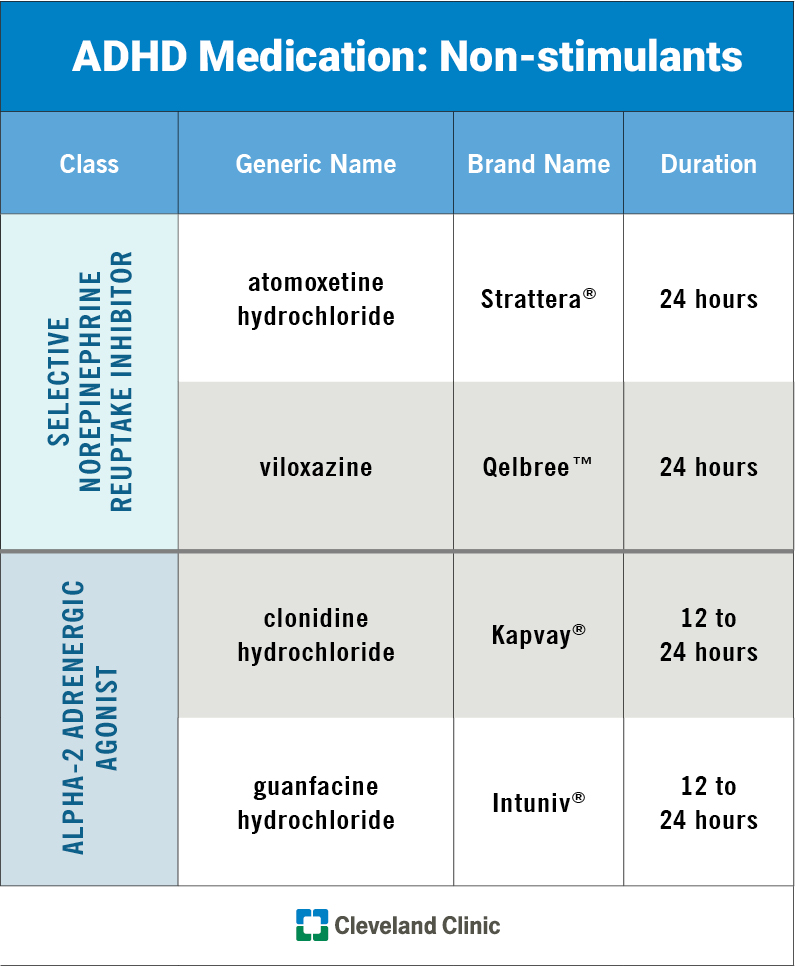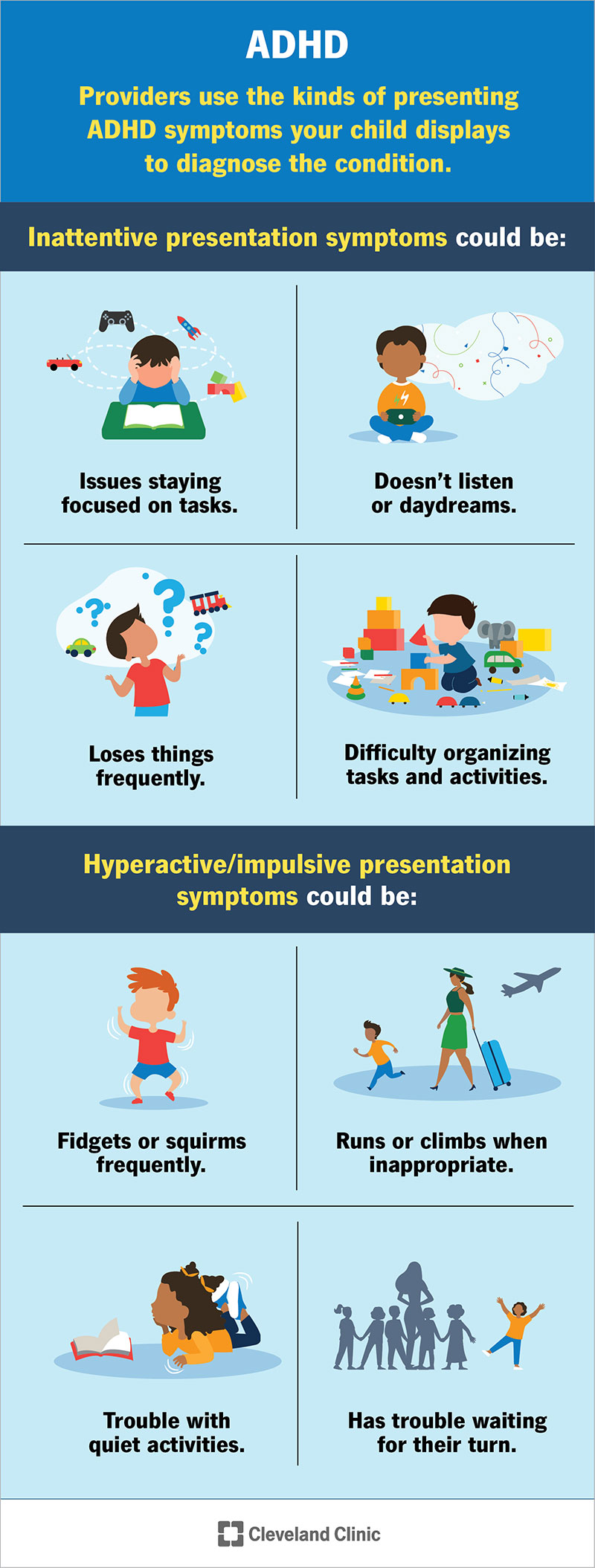Exploring Efficient ADHD Therapy Options for All Ages
The intricacies of Attention Deficiency Hyperactivity Disorder (ADHD) present one-of-a-kind challenges throughout different age, necessitating a thorough expedition of reliable therapy alternatives. A mix of behavior modifications, medicinal interventions, and way of living adjustments has revealed promise in addressing the diverse demands of individuals with ADHD. The effectiveness of these approaches can vary dramatically based on personal circumstances, raising vital concerns regarding tailored strategies. As we take a look at the spectrum of therapy modalities readily available, it becomes important to think about not just their instant effects but also their lasting implications for people and families.
Comprehending ADHD and Its Impact
Attention-Deficit/Hyperactivity Problem (ADHD) is a neurodevelopmental problem characterized by persistent patterns of negligence, attention deficit disorder, and impulsivity that can substantially impact different facets of an individual's life. It commonly materializes in youth, although symptoms can linger into their adult years. The core signs of ADHD can disrupt educational efficiency, hinder social communications, and make complex work-related undertakings.
Individuals with ADHD often struggle with keeping focus on jobs, arranging activities, and following with on instructions, which can result in scholastic underachievement (Depression Treatment). In social contexts, impulsivity might cause difficulties in developing and sustaining relationships, as people may interrupt discussions or make hasty choices without considering repercussions
In addition, ADHD can co-occur with various other mental wellness conditions, such as stress and anxiety and clinical depression, better complicating medical diagnosis and treatment. The variability in signs and symptom presentation suggests that ADHD can affect individuals in different ways, demanding a personalized technique to administration. Comprehending ADHD's multifaceted effect is essential for developing reliable techniques that sustain people in navigating day-to-day challenges and accomplishing their potential. Comprehensive awareness of ADHD's nature and implications lays the groundwork for exploring suitable therapy alternatives tailored to each individual's requirements.
Behavioral Therapies for ADHD
Various behavioral therapies have been developed to successfully deal with the difficulties linked with ADHD, concentrating on customizing specific actions and fostering vital abilities. Amongst one of the most recognized techniques are cognitive-behavioral treatment (CBT), parent training, and social abilities training.
CBT assists individuals determine and change adverse thought patterns and behaviors, promoting a much more favorable expectation and improved self-regulation. This therapy frequently consists of functional approaches for handling impulsivity and enhancing company. Parent training programs empower caregivers by furnishing them with strategies to reinforce favorable behaviors and set regular limits, which can be specifically valuable for youngsters with ADHD.
Social skills training is one more important part, mentor people with ADHD exactly how to interact properly with peers - Depression Treatment. This strategy usually includes role-playing and responses to boost communication, teamwork, and dispute resolution skills
Integrating these behavior treatments into a thorough treatment strategy can considerably enhance functioning and high quality of life for individuals with ADHD. Inevitably, the effectiveness of these therapies relies on tailored approaches that take into consideration the one-of-a-kind needs of everyone, consequently cultivating strength and flexibility in life.
Drug Options Available
For numerous people with ADHD, medication can play a considerable role in managing symptoms and enhancing general functioning. The two key groups of medications recommended for ADHD are stimulants and non-stimulants.
Stimulants, such as find out here now methylphenidate and amphetamine-based drugs, are one of the most typically used therapies. These medicines function by increasing the degrees of neurotransmitters, especially dopamine and norepinephrine, in the mind, which assists enhance interest and reduce impulsivity and hyperactivity. They commonly generate quick results, making them a favored alternative for several individuals.

It is vital for doctor to carry out a detailed analysis to establish one of the most ideal medication based upon specific needs, case history, and potential adverse effects. Routine follow-up and monitoring are also important to guarantee the performance of the selected therapy and to make any kind of required modifications.
Way Of Living Adjustments to Consider
Handling ADHD successfully prolongs beyond medicine, as lifestyle adjustments can substantially improve total health and sign control. Including structured regimens is vital; regular timetables help individuals with ADHD manage websites their time effectively and decrease feelings of bewilder.
Regular physical activity is one more vital element. Exercise not i thought about this just aids to enhance concentration however likewise increases state of mind and decreases stress levels. Activities such as yoga or group sports can be especially beneficial, advertising both physical health and fitness and social communication.
Nutrition likewise plays a crucial function. Depression Treatment. A balanced diet regimen abundant in omega-3 fats, entire grains, and lean proteins can add to boosted focus and cognitive feature. Limiting sugar and processed foods is advisable, as these can worsen hyperactivity and impulsivity
Sleep health is crucial for taking care of ADHD signs. Establishing a normal sleep routine and developing a peaceful setting can boost sleep high quality, leading to much better interest and psychological policy.
Alternative and Alternative Techniques
Alternate and holistic techniques to ADHD therapy use a diverse variety of alternatives that match conventional methods. These techniques commonly focus on lifestyle alterations, nutritional interventions, and restorative techniques that aim to improve general health while addressing ADHD signs.

Mindfulness and behavior treatments are also acquiring grip as all natural treatments. Practices such as yoga exercise, meditation, and cognitive-behavioral therapy can cultivate self-regulation and enhance interest. These techniques support psychological strength, which is specifically beneficial for individuals with ADHD.
Natural supplements, such as ginkgo biloba and ginseng, are occasionally explored; however, it is essential to seek advice from medical care specialists prior to including these right into therapy strategies. While choice and holistic methods can offer important assistance, they need to preferably be made use of together with evidence-based treatments to accomplish ideal results for managing ADHD throughout any ages.
Final Thought
In summary, reliable ADHD treatment requires a thorough technique that includes behavioral treatments, drug, lifestyle alterations, and holistic techniques. This multifaceted approach underscores the relevance of customized treatment in resolving the diverse requirements of people with ADHD across all age groups.